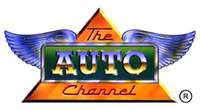The Auto Channel's Open Letter Reply to the Environmental Law and Policy Center's Recent White Paper
 |
Sent to Howard A. Learner, Executive Director, and Madeleine Weil, Policy Advocate, Environmental Law and Policy Center
Hello Howard and Madeleine:
While we at THE AUTO CHANNEL are confident that the Environmental Law and Policy Center's recent press release and White Paper "SAVING $6.75 BILLION EACH YEAR FOR ILLINOIS ECONOMY: HOW WOULD YOU SPEND IT?" was well intentioned and meant to provide a direction of leadership that would be beneficial to Illinois, and the country as a whole, we believe that you have missed the mark on where the focus should be placed and what the ultimate goal is.
In our reading of the report (http://www.elpc.org/ilcleancars) it seems that your entire argument hinges on the paragraph found at the top of page three:
“Here’s how all of this works. When we buy gasoline at the pump in Illinois, we’re really enriching oil companies and fueling the economies of other states, countries and continents. Because Illinois does not produce oil, the vast majority of every dollar spent on gasoline in Illinois exits the state. When we spend less on gasoline, however, we can use the savings to spend more on food, clothing, entertainment and other local goods and services.”
You are absolutely correct in calling attention to the fact that buying gasoline only really enriches entities and countries other than the State of Illinois and the U.S. And you go on to make a point that we couldn’t agree more with, which is that “we” want people to buy and do and enjoy – versus recommending severe austerity measures.
However, what you fail to take into account is that part of the buying and doing and enjoying includes the freedom to GO and do those things, and to go and do those things in the mode of transportation that is of the individual’s choosing - even if the mode of transportation is a grossly stupid Hummer. Remember that the buying of these vehicles of choice also benefits the State of Illinois and the country in general via tax revenues and the revenue earned at the various local retail businesses that sell and service the vehicles (and employ local residents).
Don’t get us wrong, we’re not for one instant suggesting that we not have high mandated MPG regulations. In fact, we feel that there should be no three-card-monte approach to establishing these regulations, they should be across the board: every vehicle, regardless of body type and style should have to meet high MPG requirements. Some people simply want or need larger vehicles. Some people want powerful, fast, small vehicles. They should continue aspiring to and obtaining their dream car or truck.
The problem is gasoline. Gasoline prices will never permanently lower until there is a paradigm shift in the market – until there is competition to the monopoly. As gasoline MPG requirements climb, so will the price of gasoline per gallon. There’s no benefit to getting the same miles per percentage-of-expenditure as we had when gasoline was 30 cents per gallon and the typical car got 7-8 miles per gallon. What’s more, if gasoline cost $5 per gallon the typical car would have to get over 100 MPG in order to be equal to 30 cents/7 MPG. Current ICE technology is no where close to being able to achieve over 100 MPG of gasoline, and if it were gasoline prices will probably rise to $15 per gallon.
Consequently, the idea of freeing up personal money so that the residents of Illinois (and the U.S.) can buy more items that are produced locally will never happen as long as gasoline and petroleum oil diesel are our primary engine fuels.
The solution is to mandate – along with high MPG performance – a fuel or fuels that are produced and sold less expensively in the same general localities in which they are sold. This way, not only are there more dollars for people to spend on food, clothing, entertainment, household furnishings, etc., but the money that they do spend on transportation fuel will go predominantly to their fellow residents who also cycle those dollars through the local economy, not to some despot and his terrorist regime on the other side of the world.
In our opinion the fuels that can make this happen are ethanol, CNG and propane. Although we happen to especially favor ethanol because it doesn’t require anything more than basic farming/harvesting/distilling technology, which can be duplicated anywhere in the country and makes use of a variety of available raw material, all three would cost consumers less, can produce equivalent gasoline MPG performance in respective optimized engines, and they all are far more environmentally friendly and inherently cleaner than gasoline.
Electric cars are not now the viable alternative, and they probably won’t be for several decades… yes, decades. Mandated use of ethanol, with or without CNG and propane being part of the mandate, provides an immediate solution and bridge until the time that electric vehicles can become a significant player on the overall transportation landscape.
The plan set forth in your report merely keeps us in gasoline-bondage and will take money out of the pockets of Americans – exactly the opposite of your stated goal.
We hope you will rethink and adjust your report accordingly.
Thank you for your time.
Sincerely yours,
Marc J. Rauch
Exec. Vice President/Co-Publisher
THE AUTO CHANNEL LLC


